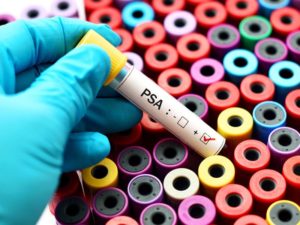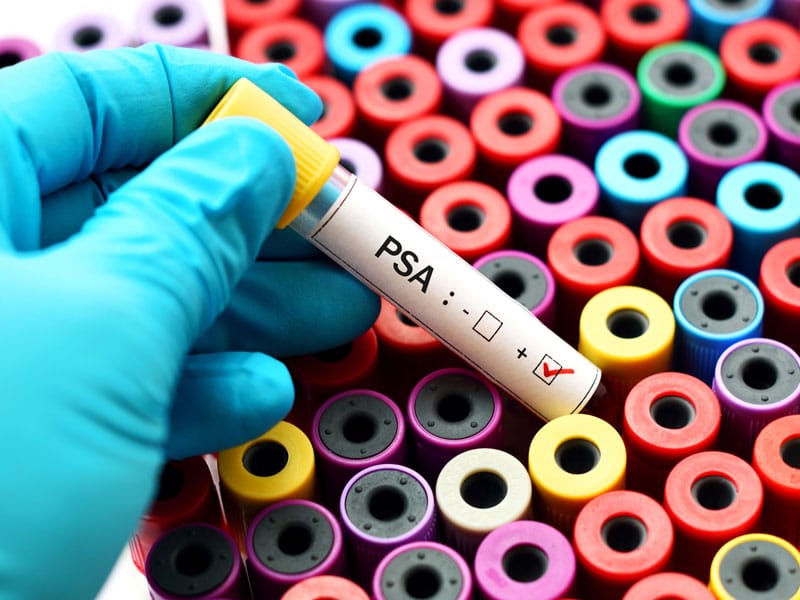Learn what you can do about the most common cancer in American men.

Am I at Risk for Prostate Cancer?
Age is the most common risk factor for prostate cancer—60% of cases occur in men over age 65, according to the American Cancer Society (ACS). Men who are African American also have a higher risk, as do men with certain gene mutations.
There are things you can do to help lower your risk, such as maintaining a healthy weight, eating a healthy diet that includes a variety of fruits and vegetables, and staying physically active.
If Prostate Cancer Doesn’t Run in My Family, Do I Still Need to Worry About It?
Family history may increase your risk for developing prostate cancer, especially if you have a first-degree relative who had the disease. However, the ACS notes that most prostate cancers are found in men with no family history.
What Are the Symptoms of Prostate Cancer?
Prostate cancer may not lead to symptoms until the disease has reached more advanced stages, which is why talking to your primary care provider (PCP) about your risk and screening options is so important. When symptoms do appear, they can mimic those of other conditions, such as benign prostatic hyperplasia. Schedule a visit with your PCP if you experience any of the following symptoms:
- blood in the urine or semen
- difficult, frequent, or painful urination
- pain in the lower pelvic area
- painful ejaculation
Do I Need a PSA Test?
Screening for prostate cancer helps detect the disease when it is most treatable. The ACS recommends that men at average risk begin discussing screening options, such as prostate-specific antigen (PSA) tests and digital rectal exams, beginning at age 50. These conversations should begin earlier if you have one or more risk factors. Your provider can help you decide which screening is best for you based on your personal risk factors and health history.
How Is Prostate Cancer Treated?
Men who develop prostate cancer do not have to leave the White Mountain community for advanced care and treatments. At the Summit Healthcare Cancer Center, our doctors develop a care plan tailored to your individual case and needs.
Some prostate cancers grow so slowly that they never need treatment. For those men, we offer active surveillance, which involves frequent testing to monitor the cancer and treatment only when necessary.
When treatment is needed, our physicians develop individualized treatment plans that may include chemotherapy, hormone therapy, immunotherapy, radiation therapy, and/or surgery.
Learn more about the Summit Healthcare Cancer Center.

